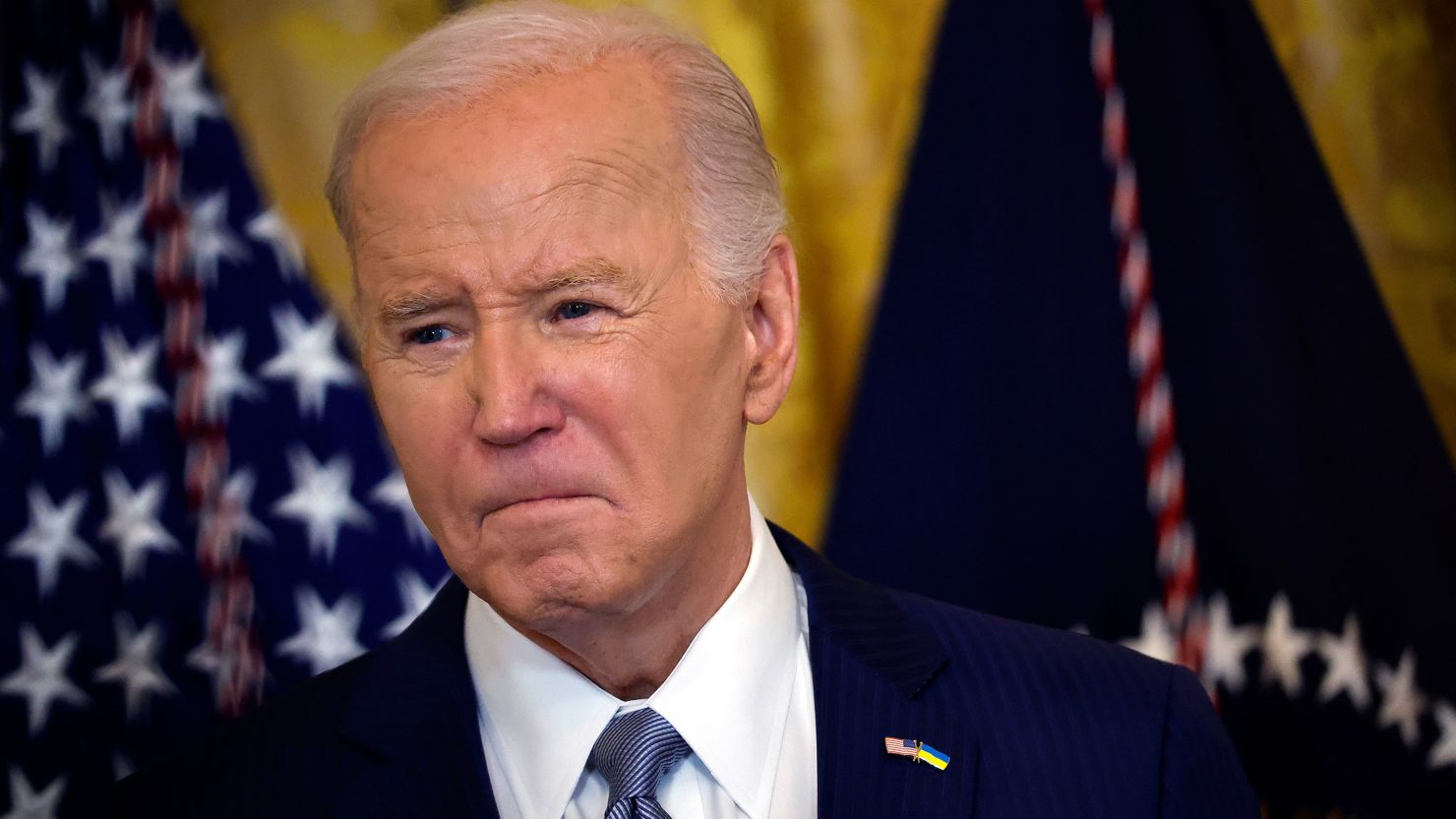President Joe Biden is taking new executive action Monday to improve research on women’s health across the federal government as well as announce new actions being taken by several federal agencies as the White House seeks to increase funding for women’s health research.
While none of Monday’s actions are directly related to IVF research, the announcement comes as the Biden campaign has made reproductive health a focal point of his reelection campaign. Ever since Roe v. Wade was overturned, threats to abortion access and reproductive health have been animating voters critical to Democrats’ coalition.
Speaking to an audience gathered in the East Room of the White House for a reception marking Women’s History Month on Monday, Biden needled the efforts of former President Donald Trump and Republican members of Congress to restrict women’s access to health care, while vowing to reinstate Roe v. Wade as the law of the land if he’s reelected with a Democratic-controlled Congress.
“Our basic freedoms are under assault – the freedom to vote, freedom to choose and so much more,” Biden said. “My predecessor and his allies in Congress make no apologies for it, but here’s the deal: In the decision to overturn Roe v. Wade, the Supreme Court wrote, ‘Women are not without electoral and/or political power.’”
“No kidding!” the president added.
Biden’s new executive order Monday will integrate and prioritize women’s health across various federal agencies, fuel new research, and order the Office of Management and Budget and the Gender Policy Council to assess gaps in federal funding, according to the White House.
In addition to the executive order, Biden and first lady Dr. Jill Biden will be announcing over 20 actions or commitments being taken by several federal agencies. One of those efforts highlighted by the White House include a new effort from the National Institute of Health to direct “key investments” of $200 million to fund interdisciplinary women’s health research.
Biden made women’s reproductive rights a central pitch of his State of the Union address earlier this month - during which he urged Congress to pass $12 billion in new funding for women’s health research - and Vice President Kamala Harris has been traveling the country on a “Fight for Reproductive Freedoms” tour since late January.
That tour saw Harris visit a Planned Parenthood clinic in Minnesota last week – historic because it was the first time a sitting president or vice president had visited an abortion provider.
She has also made stops in California, Georgia, Michigan, Arizona and Wisconsin.
Introducing Biden on Monday, Harris warned the country is facing “a full-on attack against hard-fought, hard-won freedoms and rights, including the rights of women to make decisions about their own body and not have their government tell them what to do.”
“Today in America, one-in-three women of reproductive age live in a state with an abortion ban,” she said, adding that she’s met “women who have had miscarriages in toilets because they were refused care” since Roe was overturned.
Nearly half of all registered voters in the United States say the November elections will have a “major impact” on abortion access, and 1 in 8 say the issue will be the most important driving factor motivating their vote, according to a KFF survey earlier this month.
The issue as a motivating factor for voters was sharpened after the Alabama Supreme Court last month ruled that frozen embryos were children, and that those who destroyed the embryos could be held liable for wrongful death. A new law passed by Alabama lawmakers has allowed IVF treatment to continue in the state after a panicked response by providers in the wake of the court decision.
The ruling caused even some of the most conservative members of Congress to move for legislation that would protect IVF, though House Speaker Mike Johnson said last week that the issue should be up to the states, not Congress.
“This is a huge opportunity for transformative change and will help improve the health and lives of women all across the country,” Dr. Carolyn Mazure, the chair of the White House Initiative on Women’s Health Research, said in a call with reporters.
This story has been updated with additional developments on Monday.





